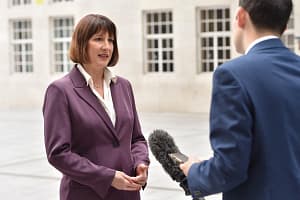New figures from HMRC shows that 360,000 people withdrew from their defined contribution (DC) pensions throughout October, November and December 2020. This is a 10% increase on the same period last year from 327,000, and a 4% rise compared to the previous three months. This is not the usual seasonal pattern as typically there is a slight drop in the numbers of individuals withdrawing during this period. HMRC state that this change in behaviour may be attributable to the impact of the Covid-19 pandemic.
It also found that in total £2.4 billion was withdrawn from DC pensions through this period. This represents a 6% increase year-on-year from £2.2 billion withdrawn throughout the same months in 2019.
Jonathan Watts-Lay, Director, WEALTH at work, a specialist provider of financial education and guidance in the workplace, supported by regulated financial advice for individuals.
He said, “It can be really tempting for those aged over 55 to access their defined contribution pension early if they have an urgent need for cash due to redundancy or a reduction in their income. However, there are significant risks if you take money out of your pension without seeking appropriate financial guidance first.”
He added, “One of the main things is to make sure that you don’t end up paying more tax than you were expecting. Usually only the first 25% of a pension is tax free; the remaining 75% is taxed as earned income. If the amount withdrawn jumps you up into the higher rate tax bracket, you could end up paying tax of 40%, instead of the 20% you may have been expecting to pay.”
Watts-Lay explained, “Also, and perhaps more importantly, whilst you may really need the cash at the moment, you will also need money in your retirement. There are limits on how much can be paid into a pension after a withdrawal has been made, making it more difficult if you want to try to replace the money withdrawn in the future.
“It is important to consider all your options if you are struggling to make ends meet, such as the government-backed mortgage holiday and debt repayment deferrals, or using alternative savings to replace any lost income, and weigh up the best option for you. Learning how to budget and manage debt on a reduced income is crucial during these uncertain times.”
He concluded, “Many employers now offer access to financial education, guidance and regulated financial advice to their employees, so it is worth speaking to them to find out what help is available.”






Leave a Comment